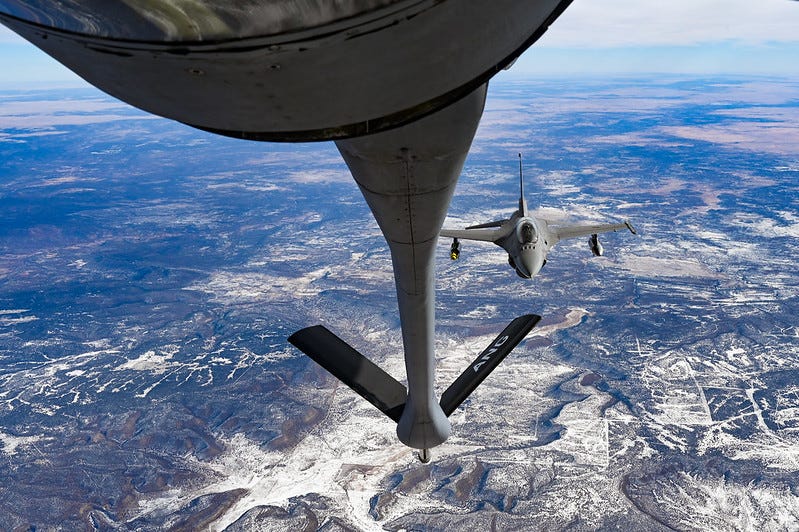Buckle up! You could soon be frying the friendly skies.
Airlines and airports experiment with jet fuel made from used fryer oil.

(A native of England, Matthew Diebel is a veteran journalist who has worked at NBC News, Time, USA Today and News Corp., among other organizations. Having spent his childhood next to one of the world's fastest bodies of water, he is particularly interested in tidal energy.)
We’ve all done it. You get to the airport more quickly than you estimated. Your flight is delayed. Or you are on a layover. And you get peckish.
Which means a trip to a food outlet. And, maybe, French fries or some other delicacy from the deep fryer.
Then, if you’re flying from Dallas-Fort Worth, and have savored a specialty from one of the McDonald’s (MCD) at the hub, you take off on a plane that uses the chain’s used fryer oil as fuel.
"If you are Dallas Fort Worth International Airport and you have a fryer in your restaurant — you're recycling oil," DFW McDonald's franchisee Chalmer McWilliams told NBC News. About 32,000 pounds of cooking oil is recycled every month at the airport to be converted to sustainable aviation fuel, known as SAF.
Pratik Chandhoke, the technical services manager for sustainable aviation fuel at the U.S. division of Finland-based oil refiner Neste (NTOIY), said the chemical compositions of cooking oil and jet fuel are similar, meaning the conversion is not too complicated. The company strains out leftover fries and McNugget debris, heats the oil and adds hydrogen — among other steps — to convert it to jet fuel. “There’s no difference,” he added. “It’s the same jet fuel that you are using right now.”
Neste also is experimenting with SAF in Europe, reports Fox News (FOXA), with United Airlines (UAL) having signed up to buy 52.5 million gallons of SAF for United flights at Amsterdam’s Schiphol Airport and potentially other airports.
So why is this not happening everywhere? The big drawback for now is that cost of SAF is many times higher than traditional propellants.
DFW officials say, however, that as more airports convert to cooking oil, the price of SAF will become less onerous.
“We already believe we have the infrastructure setup. We have fuel distribution systems,” DFW’s vice president of environmental affairs, Robert Horton, told NBC News. “If we can get continuous supply at the right economic rates, we have a drop-in solution that can be applied right here.”
Supersize my fries, please.


